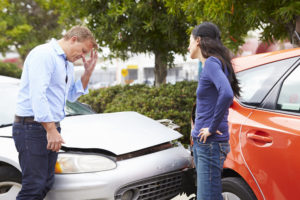It’s a terrifying moment. A car, moving at highway speed, blows a tire and suddenly begins to fishtail. When a tire becomes damaged and rapidly deflates, the driver often loses control. Tire blowouts are a leading cause of car accidents. They are particularly risky for big rigs and tractor-trailers. In addition to rubber shards flying over the road, the truck — all 80,000 pounds of it — can overturn.
What Causes Tire Blowouts?
For those who regularly travel on the interstate, you may notice discarded shreds of rubber on the side of the road. Each one of those you see is an instance where a tire exploded, likely causing a dangerous accident. It is best to know why blowouts occur to help prevent a serious accident. Tire blowouts have numerous possible causes including:
- Large or small cuts to the rubber
- Potholes that damage the tire
- Excessive heat
- Incorrect temporary tire size
- Driving too long (or too fast) on a temporary tire
- Worn-out tread
- Overloaded vehicle
Tire blowouts happen with devastating suddenness, but thankfully something is being done to prevent them. Car manufacturers now require all cars made since 2008 to come equipped with automatic tire pressure monitoring systems. Although this technology indicates when tire pressure is getting low, it is important to know how to respond in the event of a tire blowout.
How to Respond to a Tire Blowout
Hearing the explosive pop of a blowout can cause drivers to naturally overreact and jerk the wheel when it pulls in the direction of the deflated tire. Instead, drivers should keep a firm grip on the wheel and avoid slamming on the brakes. While gently counter-steering to offset the car’s pull toward the deflation, drivers should allow the vehicle to slow down gradually while moving toward the side of the road before turning on emergency flashers and calling a vehicle service.
Preventing Tire Blowout Accidents
Tire blowouts may seem to occur suddenly, but there were likely indicators that, if addressed, could have prevented an accident. Following these tips can help you avoid a tire blowout accident:
- Check tire pressure monthly and examine traction carefully
- Be aware of any changes in the car’s ride
- Always keep hands on the wheel to be able to react quickly at a moment’s notice
- Follow the three-second rule
Tire blowouts are frightening, but with improved technology and routine maintenance, the chances of them occurring continue to decrease. If you or someone you know suffered an injury as a result of a tire blowout accident, don’t hesitate to seek legal representation. Car Accident Cases has experience linking the afflicted driver with tire blowout accident attorneys who can help secure the maximum compensation available. Contact us today for a free case evaluation.

